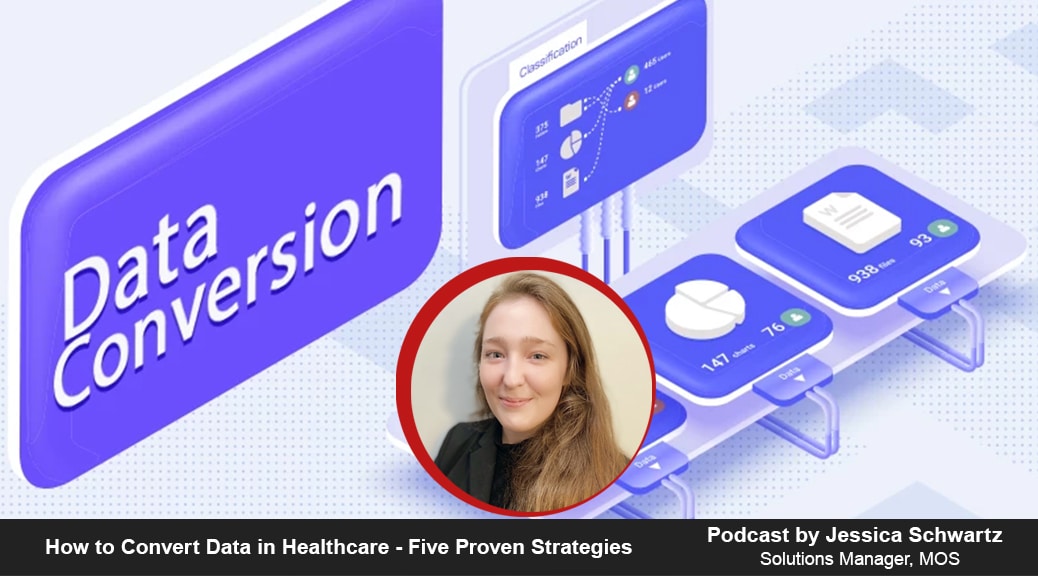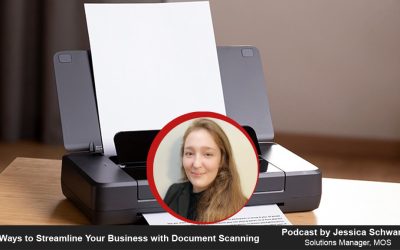Managed Outsource Solutions (MOS) is an experienced global business process outsourcing company based in the United States. We provide a vast range of BPO solutions, including document scanning services, document conversion, and data entry, for diverse industry verticals.
In this podcast, Jessica Schwartz, Solutions Manager at Managed Outsource Solutions (MOS), discusses top strategies for data conversion in healthcare.
Podcast Highlights
00:01 Proven Strategies for Data Conversion in Healthcare
00:04 Introduction
00:50 How to ensure a smooth data conversion process in healthcare?
00:54 Determine the data to be converted
01:14 Establish a budget
01:30 Ensure data quality and integrity
01:49 Address non -discrete data
02:10 Build a strong support system
02:33 Conclusion
Read Transcript
00:04 Introduction
As the demand for electronic health records, or EHRs, continues to rise, healthcare organizations are faced with the task of converting data from one format to another in order to optimize efficiency. Data conversion services are available to facilitate a smooth transition from paper records to electronic health records, or to upgrade to a new EHR system. However, healthcare data conversion is a complex, multifaceted process which involves unique challenges. In this blog, we look into inherent complexities of healthcare data conversion and effective strategies for achieving successful outcomes.
00:50 How to ensure a smooth data conversion process in healthcare
00:54 Determine the data to be converted – Clearly identify the data that needs to be transferred or converted. This includes patient demographic information, medical history, medications, allergies, referral details, immunization records, and relevant legal documents.
01:14 Establish a budget – Consider the costs involved in a phased approach or running two systems simultaneously. Communicate resource requirements to all stakeholders and ensure their commitment throughout the implementation stages.
01:30 Ensure data quality and integrity – Data accuracy, consistency, and quality are crucial during the conversion process. Attention to detail at each stage helps avoid inaccuracies that can impact patient care, billing, and reporting.
01:49 Address non-discrete data – Non-discrete data, such as image-based documents or reports, may require special handling. Evaluate how the target system supports and displays such data, and ensure it can promote informed clinical decisions and enhance the overall healthcare experience.
02:10 Finally, build a strong support system – Engage an experienced team that understands the nuances of successful healthcare data conversion. They should be well-equipped to navigate common challenges and ensure seamless access to patient data throughout the implementation of new EHR system and associated technologies.
02:33 Conclusion
Implementing these strategies empowers healthcare organizations to overcome data conversion challenges and achieve successful outcomes. However, managing the process in-house can be complex, time-consuming, and costly. Outsourcing the task can provide the solution. Healthcare data conversion and medical records scanning services provide a viable solution that ensures secure, accurate, and timely results.By partnering with entrusted service providers, healthcare organizations can streamline the data conversion process and focus on their core competencies, ultimately saving time and resources while ensuring the integrity of their data.
Thank you for listening. We hope you have a good day.




